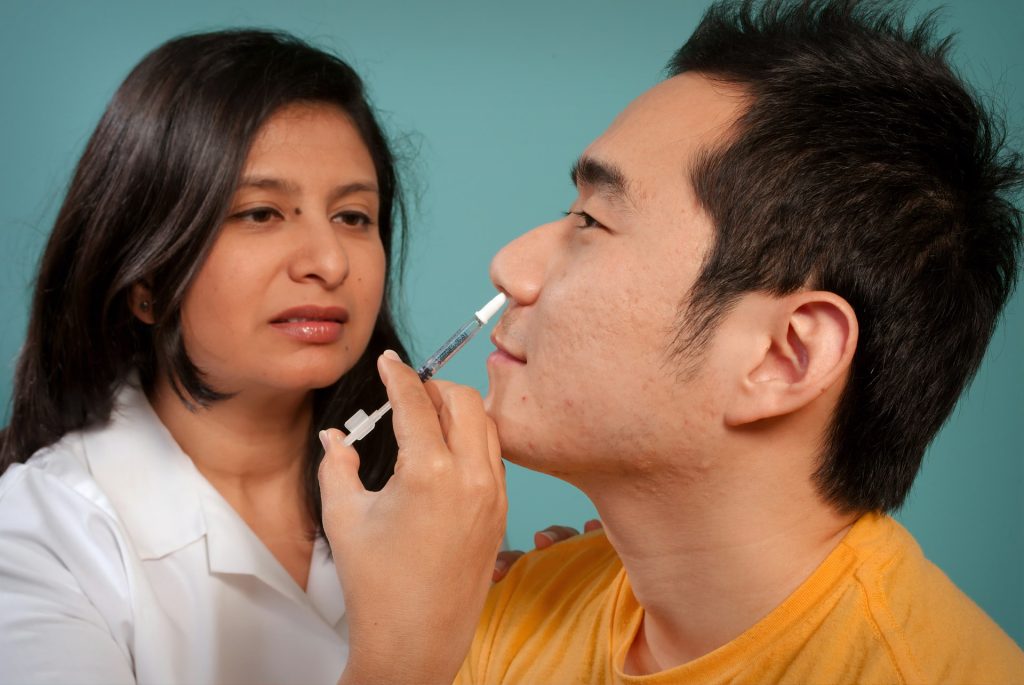
Though great progress has been made in developing intramuscular COVID vaccines, as yet nothing provides mucosal immunity in the nose, the first barrier against the virus encounters before it travels down to the lungs.
In terms of both immune cell deployment and immunoglobulin production, the mucosal immune system is by far the largest component of the entire immune system, having evolved to provide protection at the main sites of infectious threat: the mucosae.
In iScience, Navin Varadarajan, Professor of Chemical and Biomolecular Engineering, and colleagues, report the development of an intranasal subunit vaccine that provides durable local immunity against inhaled pathogens.
“Mucosal vaccination can stimulate both systemic and mucosal immunity and has the advantage of being a non-invasive procedure suitable for immunization of large populations,” explained Prof Varadarajan. “However, mucosal vaccination has been hampered by the lack of efficient delivery of the antigen and the need for appropriate adjuvants that can stimulate a robust immune response without toxicity.”
To get around this, Prof Varadarajan worked with Xinli Liu, associate professor of pharmaceutics, and an expert in nanoparticle delivery. Prof Liu’s team packaged the agonist of the stimulator of interferon genes (STING) inside liposomal particles to create an adjuvant called NanoSTING.
“NanoSTING has a small particle size around 100 nanometres, which exhibits significantly different physical and chemical properties to the conventional adjuvant,” said Prof Liu.
“We used NanoSTING as the adjuvant for intranasal vaccination and single-cell RNA-sequencing to confirm the nasal-associated lymphoid tissue as an inductive site upon vaccination. Our results show that the candidate vaccine formulation is safe, produces rapid immune responses—within seven days—and elicits comprehensive immunity against SARS-CoV-2,” said Prof Varadarajan.
Intramuscular vaccines have a fundamental limitation in that they are not designed to elicit mucosal immunity. As shown in previous work with respiratory pathogens like influenza, sterilising immunity to virus reinfection requires adaptive immune responses in the respiratory system.
The nasal vaccine will also help the equitable global distribution of vaccines, according to the researchers. Many smaller countries have only vaccinated a small percentage of their population, and outbreaks continue. These outbreaks and viral spread are known to facilitate viral evolution, ultimately leading to decreased efficacy of all vaccines.
“Equitable distribution requires vaccines that are stable and that can be shipped easily. As we have shown, each of our components, the protein (lyophilised) and the adjuvant (NanoSTING) are stable for over 11 months and can be stored and shipped without the need for freezing,” said Prof Varadarajan.
Source: University of Houston

